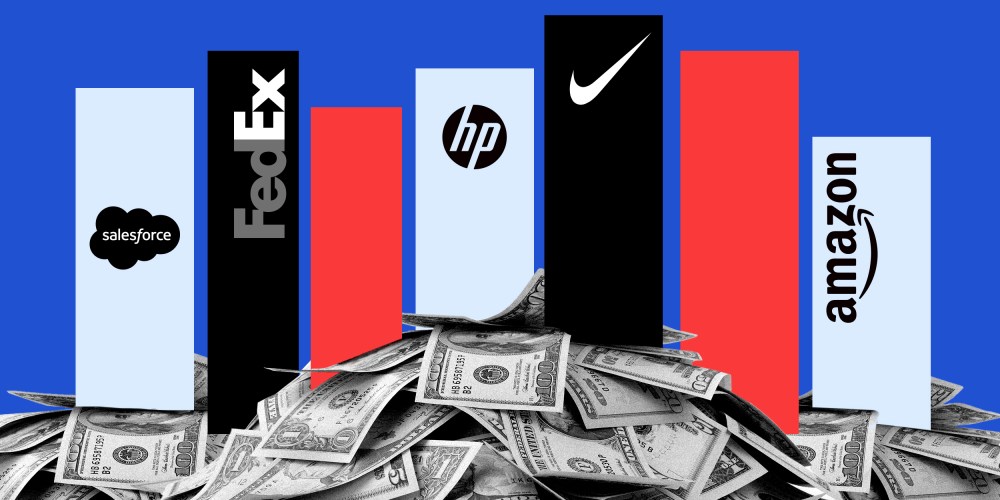The days since President Joe Biden introduced his infrastructure plan have seen an all-hands push from his economic team to convince the country that this is $2 trillion the U.S. can’t afford to put off spending anymore.
Even though the price tag is high, Biden has emphasized that there’s a plan to pay for all of this new spending. Among the other changes Treasury Secretary Janet Yellen laid out last week is that the corporate tax rate would be raised to 28 percent from the current 21 percent. As you could probably guess, after years of complaining about crumbling infrastructure, the corporations that would be doing the paying aren’t pleased at all.
These rumblings in the business community — echoed by some of the more moderate Democrats in Congress — seem to have the administration ready and willing to compromise on the revenue side of things. I understand the inclination to get broad support for the American Jobs Plan, but yielding to corporate demands here would be a terrible mistake. If anything, corporations should pay even more than the Biden administration has on the table.

There’s no question that the tax code is extremely generous to big business. A recent report from the Institute on Taxation and Economic Policy found that despite being profitable last year, 55 of the biggest companies in the U.S. paid no federal income taxes. Corporations managed this through a combination of “long-standing tax breaks preserved or expanded by the 2017 Tax Cuts and Jobs Act (TCJA) as well as the CARES Act tax breaks enacted in the spring of 2020.”
A new study put out just last week found that at least 55 of our largest corporations used various loopholes to pay $0 in federal income taxes in 2020.
— President Biden (@POTUS) April 9, 2021
It’s not fair to the rest of the American taxpayers — and we’re going to put an end to it.
Meanwhile, despite changes to the tax code designed to keep U.S. companies from hiding their profits outside the country, the Treasury Department still estimates that the equivalent of a staggering 1.5 percent of the U.S. gross domestic product is housed in just seven major overseas tax havens.
Under Biden’s plan, as the Treasury Department has detailed, the corporate tax rise would be paired with strengthening the global minimum tax for U.S. multinationals, replacing fossil fuel subsidies with clean energy alternatives and ramping up enforcement to go after companies that dodge paying what little taxes they owe.
Bear in mind that these companies were still paying 35 percent, higher than Biden is asking, as recently as 2016, before the Trump administration’s tax cuts. The effective rate being paid was already even lower than the current ceiling — thanks to various loopholes, over half of the Fortune 500 paid closer to 19 percent from 2008 to 2012.

But of course, businesses are doing their best to scuttle the tax hike. Politico reports that behind the scenes, major corporations are fuming at the proposed tax changes:
Executives at some of America’s largest companies complain much more bitterly in private about the White House approach, arguing that raising the top corporate rate to 28 percent from 21 percent — without restoring deductions eliminated in then-President Donald Trump’s 2017 tax cut bill — would damage hiring and the economy. And they say instituting a global minimum tax that other countries may not adopt would drive more jobs and profits out of the U.S. They also complain about a lack of sufficient outreach to the business community before the infrastructure plan was rolled out and worry that Biden is forsaking his campaign promises to work on a bipartisan basis on such sweeping legislation.
Politico adds that some executives are publicly saying they’d be fine with, say, a 25 percent rate. But that would be true only if it were paired with restoring deductions that were scrapped in the 2017 tax changes and giving up plans to boost the global minimum tax. Those are some pretty big caveats for these companies still paying a lower tax rate than they did from 1993 to 2017.












